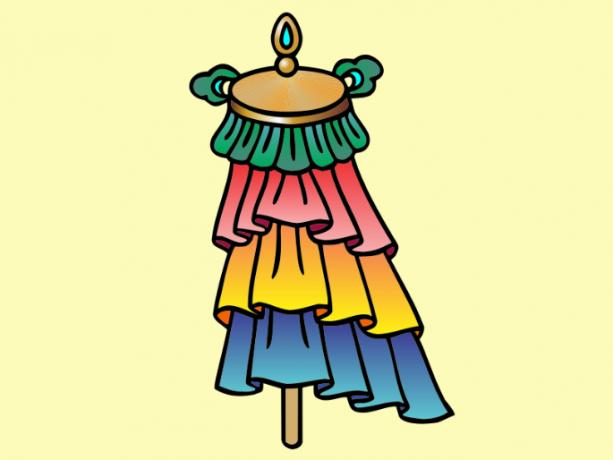The seven deadly sins are, according to Catholic doctrine, the main mistakes or vices that give rise to the various sinful actions committed by people. In other words, it can be said that they are the root of sins, the "leaders" of bad actions and bad thoughts. The term "capital" comes from the Latin word caput, which means "head", "top".
The seven sins are the superb, a avarice, a envy, a will, a lust, a greediness and the laziness.
1. superb
Pride can be defined as excessive pride. It's the tendency to think of ourselves as better than everyone else. Pride is the sin of the extremely vain person, who thinks and acts as if he were above everything and everyone. The opposite of pride is humility.
For Catholics, pride is the main sin or root of all sins, as it participates in original sin, described in Genesis.
God forbade Adam and Eve to taste the fruit of the tree of knowledge. But the devil tempted Adam and Eve, saying that if they tasted the fruit they would be like God, knowing good and evil. Wanting to be equal with God, Adam and Eve committed the sin of pride.
2. Avarice
Avarice, also called greed, is the excessive attachment to material goods and money. A greedy person is stingy, that is, he does not like to share what he has and does everything to always have more. Avarice is the opposite of generosity.
There are many passages in the Bible that refer to greed. One of them is in the First Epistle to Timothy, written by the Apostle Paul:
Those who want to get rich fall into temptation, traps and many uncontrolled and harmful desires, that lead men to plunge into ruin and destruction, for the love of money is the root of all evils. Some people, lusting after money, have turned away from the faith and have been tormented with much suffering.
1 Timothy 6:9-10
3. Envy
envy is sadness for someone else's sake. The envious person is the one who feels bad about the achievements of others, being incapable of being happy for others, as if someone else's victory represented a personal loss. The opposite of envy is charity, detachment and generosity.
There are many passages in the Bible about envy, one of the most important being the one in which the first murder is narrated. In the Old Testament, we read that Cain killed his own brother because God had appreciated more the sacrifices made by Abel. Therefore, according to the Bible, the addiction behind the first murder is envy.
4. Will
Anger, anger or fury is a intense expression of indignation that can lead to verbal or physical aggression. The opposite of anger is patience.
Human wrath is one of the deadly sins, but much is said about divine wrath. There are several passages in the Bible that deal with divine wrath, which is God's displeasure with those who reject Him through sin.
Beloved, never seek revenge, but leave wrath with God, for it is written: "Vengeance is mine; I will repay," says the Lord.
Romans 12:19
5. Lust
lust is the sin associated with sexual desires. For Catholics, lust is about the abuse of sex or the excessive pursuit of sexual pleasure. The opposite of lust is chastity.
Of the biblical passages dealing with this sin, one of the most incisive is found in James 1:14, 15:
But each is tempted, when lured and enticed [deceived] by his own lust [sexual desire].
Then, when concupiscence has conceived, it gives birth to sin; and sin, being consummated, brings forth death.
Read more about the meanings of Lust and Lust.
6. Greediness
gluttony is the sin associated with the desire to overeat and drink, beyond the needs. This is a sin that has to do with losing control over one's body. The opposite of gluttony is moderation.
Almost all sins are related to lack of moderation. In the case of gluttony, it is the excessive consumption of food and drink, to which physical and spiritual ills are attributed, since gluttony can lead to other sins, such as laziness. The sin of gluttony is a manifestation of the pursuit of happiness in material things.
7. Laziness
laziness is the unwillingness or interest in activities that require some effort, whether physical or intellectual. Laziness can be defined as lack of action, lack of energy for work and other daily tasks. The opposite of laziness is effort, willpower, action.
For adherents of Catholicism, the sin of laziness has to do with the voluntary refusal of the duty of work (of search for daily bread), but it also has to do with the lack of courage in the practices of devotion and the pursuit of virtue.
Read more about the meaning of laziness.
The origin of deadly sins
The origin of the seven sins is in a list written by the Christian monk Evagrius Ponticus (345-399 d. C.) in order to enumerate the main bad thoughts that disturb a routine of religious practices. Instead of seven, this list consisted of eight sins. In addition to those currently known, there was sadness. There was no envy, but vainglory (vanity).
This list was later translated into Latin, being rewritten by Pope Gregory I (540-604 d. Ç.). He excluded laziness, added envy, and elected pride as the chief sin.
In the 13th century, Friar Thomas Aquinas (1225-1274) retrieved the list, again including laziness in place of sadness. The 7 sins as we know them today go back to the list of Thomas Aquinas.
See too:
- what is superb
- what is greed
- what is envy
- what is pride
- A Person's List of Defects

